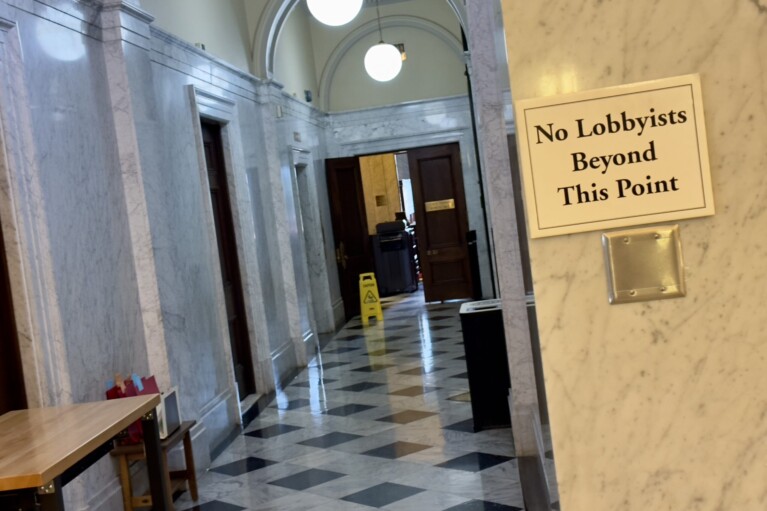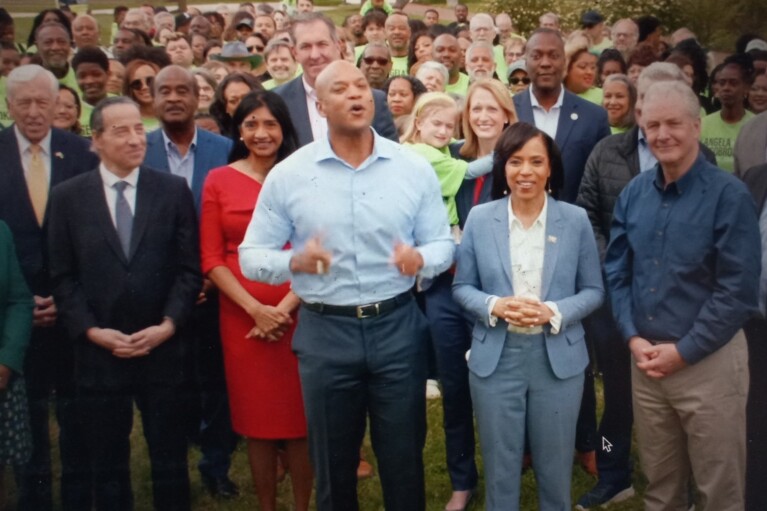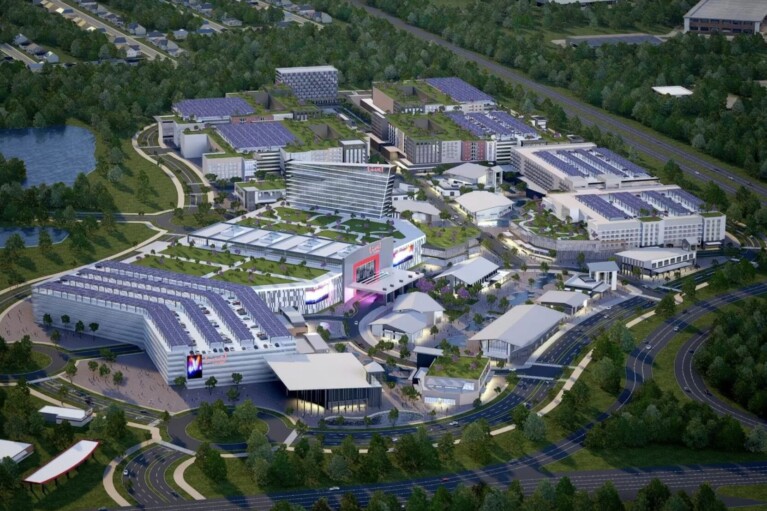Senate strips House budget language to prompt ‘thorough discussion’ about future of horse tracks

With a late budget maneuver, Maryland lawmakers are forcing a hard look at a three-year-old scheme to redevelop Pimlico Race Course, home of the middle jewel of horse racing’s Triple Crown.
The Maryland Senate voted to strip out a House of Delegates amendment from the state budget Wednesday that would have withheld $17 million from the Maryland Stadium Authority unless required agreements for the project — which also includes redevelopment of the track at Laurel Park — are signed in the next seven months.
The action, which is still subject to a final vote in the Senate, ensures that a budget conference committee made up of members from both chambers will attempt to come together with a unified approach to spur the stalled plan to improve horse racing in the state.
Sen. Guy Guzzone (D-Howard), chair of the Budget and Taxation Committee, said his committee struck the House language because it “will give us a chance to have a better and more thorough discussion with the House about what’s going on with the Pimlico and Laurel race tracks.”
Guzzone explained in a later interview that he just wanted to “take a pause” and consider options for the track plan, which has been troubled almost since its inception.
“It’s very important this session that we have sort of a clearer idea together – and I mean the administration and the House and the Senate – and have some further discussions,” Guzzone said. “It’s just really important that we all get on the same page.”
Other state officials have said that Gov. Wes Moore’s office has floated to legislative leadership the possibility of some sort of oversight commission being created to deal with the stumbling blocks that have stymied moving ahead with the plan for the tracks.
Since the legislature approved the complicated track plan in 2020, the cost has nearly doubled from the initial $375 million estimates, while little concrete progress has been made outside of multiple revisions to the original concept and note of the ever-rising costs. Those estimates have been driven up by a combination of inflation, rising interest rates, supply chain issues and site redesigns.
The House restrictions on part of the budget of the Maryland Stadium Authority, which is charged with overseeing the bogged-down project, were intended to spur the principals to approve multiple agreements for both tracks and finally begin the work.
The House would have required that the remaining seven agreements (of eight) for the Pimlico plan be signed by Sept. 30. It also would have required that all of the Laurel Park agreements needed for design be signed by Sept. 30 — even though there are no such agreements yet.
In fact, a January report by the Maryland Stadium Authority to the legislature’s budget committees noted:
“Similar agreements [to those for Pimlico] will be required prior to proceeding with construction-related services at Laurel Park, but are not highlighted within this report given the uncertainties surrounding the advancement of the Laurel Park Racing Facility redevelopment at this time.”
If the agreements were not signed, the House budget language would have withheld $17 million set aside each year for debt service on bonds for redevelopment of the two tracks, though no bonds for the project have yet been sold.
When the initial legislation was enacted, the redevelopment of Laurel Park was expected to be complete in 2022, so that racing could begin there in February 2023. But at this point, the project is three years behind schedule, no agreements have been signed, and no design or construction begun.
Construction at Pimlico was supposed to begin this summer, but negotiations on seven of the remaining agreements have slowed those plans.
The costs have skyrocketed and plans have deteriorated to the point that many now believe that only one of the two tracks can survive, and the primary focus has changed from Laurel Park to Pimlico, the more valuable home of the Preakness Stakes in Baltimore.
The sweeping plan has been subject to difficult negotiations between a variety of parties, chief among them, The Stronach Group, the Canada-based owner of the two tracks that operates here under the Maryland Jockey Club (MJC) name.
Complicating the matter further — and perhaps the deal breaker — is a change in the federal tax code that would likely cost Stronach/MJC an estimated $40 million if it were to accept state money directly for improvements at Laurel Park.
Under one scenario, Laurel Park would close, but Pimlico alone is only large enough to house about 450 horse stalls and would require finding another site for a new training facility and track with room for an additional 1,150 horse stalls — in addition to finding a buyer of the Laurel Park site for development.
A possibility mentioned as an alternative site for the new training facility, track and more stalls is the old U.S. Naval Academy Dairy Farm in Gambrills, an 857-acre parcel currently being leased by Anne Arundel County as parkland.
Last month, a damning legislative budget analysis of the track project was presented to two subcommittees in the Senate and House of Delegates, at a routine annual review of the Maryland Stadium Authority’s spending plan.
The Department of Legislative Services recommended that the legislature register its dissatisfaction with the lack of progress on the race track redevelopment by withholding $17 million for debt service on the bonds that would be held in savings for when the bonds sold. That appears to be where the House language was rooted.
When lawmakers first passed the bill authorizing $375 million in bonds for the revolving Racing and Community Development Financing Fund, $180 million was planned to benefit Pimlico and $155 million to help the Laurel Park redevelopment.
Danielle E. Gaines contributed to this report




 Creative Commons Attribution
Creative Commons Attribution